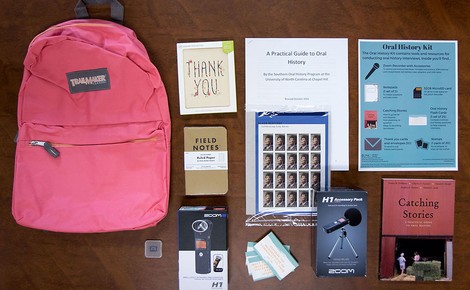Your podcast discovery platform
Curious minds select the most fascinating podcasts from around the world. Discover hand-piqd audio recommendations on your favorite topics.

piqer for: Global finds Doing Good
Marie von Hafften is a 2018 Story Fellow with the Solutions Journalism Network, curating reporting on responses to social problems. She also writes The Response, the organization's weekly newsletter. Marie studied international affairs and public policy at Columbia University and has worked for UN Women, UNOCHA and KYRS-Thin Air Community Radio. Her writing and photography have been published by PRI/GlobalPost, Christian Science Monitor, Next Billion and Global Envision.
Supporting Citizen-Historians With Basic Archiving Kits
The Southern Historical Collection (SHC) at the University of North Carolina at Chapel Hill has come up with a brilliantly straight-forward way to help citizen-historians: archivist kits.
Josephine McRobbie, a SHC community archivist who has worked with historic black towns in the South of the United States, says that archival supplies can make a big difference to communities, especially those that have experienced a significant loss of documents and landmarks.
[W]e want to help demystify the process of preserving and sharing history and empower people to get out there and further their projects,” McRobbie said.
The kits are deceptively simple: a combination of tips and tools that fit into a backpack or small traveling case. Kits designed for collecting oral histories include audio recorders and tripods, interview questions and thank you cards for participants.
Other kits include scanners to digitalize records and photos, thumb drives and archival sleeves to preserve and protect historical materials.
“Our experience is that history harvests are often the starter material that fuels larger archives aspirations in communities," McRobbie said. "And the backpacks contain what a citizen-historian might like to have to get started.”
SHC is distributing kits to student and community groups, with a focus on preserving African American heritage. The program currently has three years of funding. Do you think such a kit could help you or your community?
